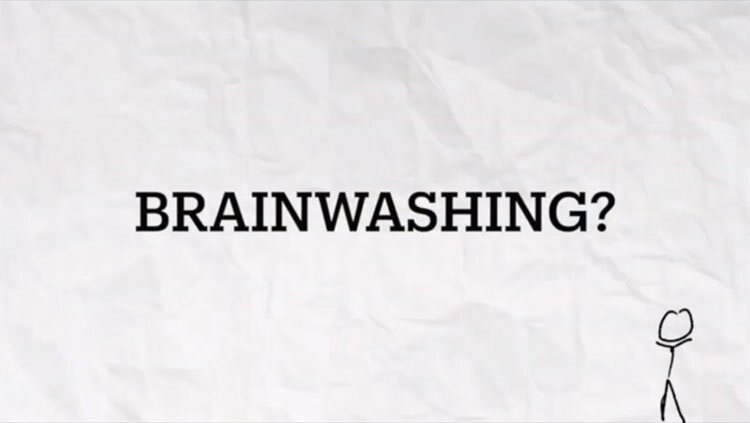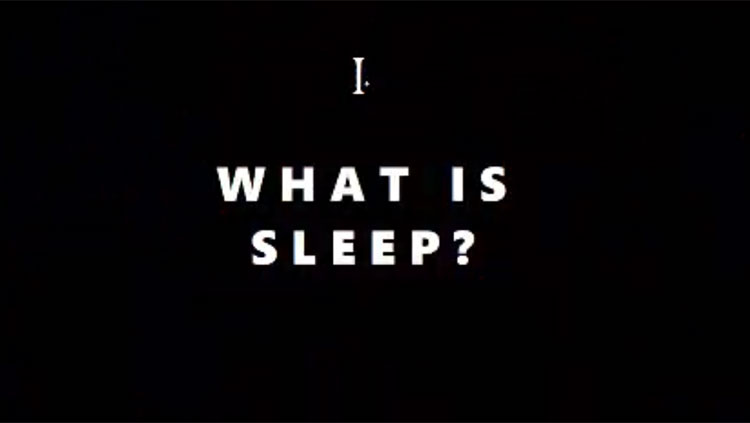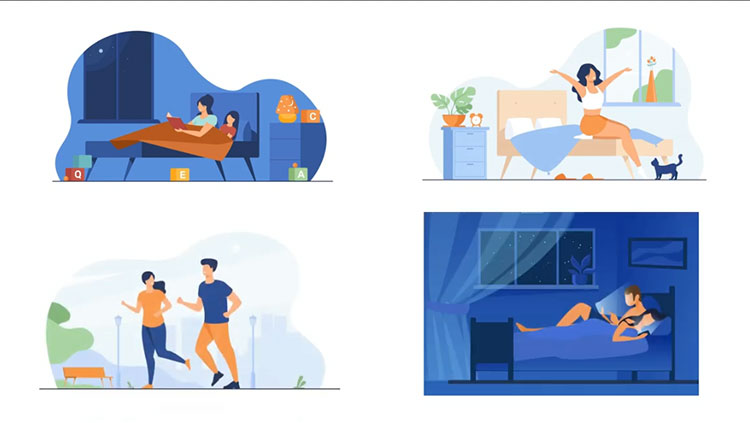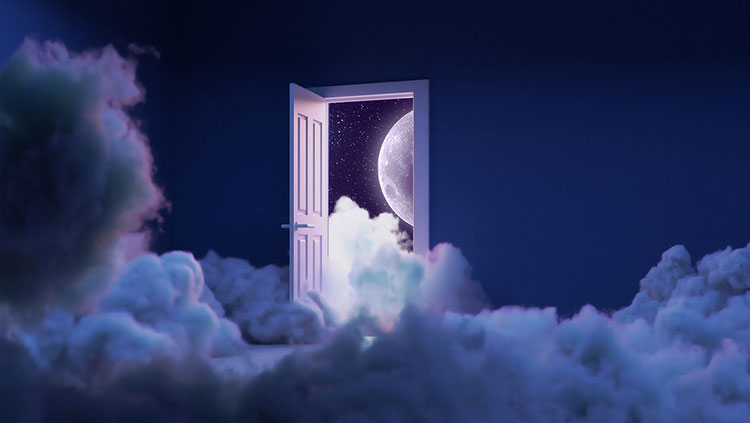How Blue Light Affects Our Ability to Sleep
- Published27 Nov 2023
- Source BrainFacts/SfN
Artificial blue light emitted by smartphone screens can disrupt our circadian rhythms, throwing off our natural sleep-wake cycles. This blue light hits our eyes and suppresses the production of melatonin, a hormone that helps induce drowsiness and regulate sleep. Since this hormone that makes us feel tired is not produced as it normally would when it’s dark, we may find it hard to fall asleep.
This is a video from the 2023 Brain Awareness Video Contest.
Created by Nurfaizatul Aisyah Ab Aziz and Siti Atiyah Ali.
CONTENT PROVIDED BY
BrainFacts/SfN
Transcript
In a world where smartphones dominate, our sleep is suffering the consequences. But if you ever wondered why it's so challenging to tear our eyes away from that glowing screen and drift off into a peaceful slumber? It's fascinating to discover that our brains are naturally wired to seek stimulation.
When we engage with our smartphones, we activate the reward centers in our brains, triggering the release of dopamine, a neurotransmitter associated with pleasure and motivation. Dopamine gives us a sense of satisfaction and reinforces the behavior of using our smartphones, making it challenging to resist their allure. This addictive tendency contributes to what we commonly refer to as smartphone addiction.
Now, let's explore the intriguing realm of blue light emitted by smartphone screens, which disrupts our natural sleep-wake cycle, also known as the circadian rhythm. Blue light, a high energy, short wavelength light within the visible light spectrum, is emitted by various sources, including the sun, fluorescent, and LED lights, and electronic devices like smartphones, tablets, and computer screens: the devices many of us rely on extensively.
While exposure to blue light during the daytime is beneficial, helping regulate our circadian rhythm and boost alertness, excessive exposure to artificial and isolated blue light, especially at night, can have adverse effects on our health and sleep patterns.
Children also are more vulnerable to the bad effect of blue light compared to adults due to their developing eyes allow more blue light to reach the retina of the eyes. Artificial sources of blue light, such as smartphones, emit higher levels of blue light compared to natural sources. When we encounter blue light at night, we tend to have difficulties to fall asleep, often referred to as smartphone insomia. But how can the usage of smartphones and artificial blue light at night impact our sleep?
The light from smartphones or other gadgets reaches the retina of the eye, specifically the layer of photosensitive ganglion cells, which contain a photopigment called melanopsin. Unlike other photoreceptors in the eye, these ganglion cells contribute little to vision, but are highly sensitive to light. These photosensitive ganglion cells have long fibers that connect to the optic nerve, eventually reaching the suprachiasmatic nucleus, SCN.
The suprachiasmatic nucleus, located in the hypothalamus, controls the circadian rhythm or sleep-wake cycle. This master clock in our brain becomes confused and perceives night as day when we expose ourselves to bright, isolated blue light from smartphones and electronic devices after sunset. This misinformation causes the suprachiasmatic nucleus, signaling that it is still daytime when it is actually nighttime.
Consequently, the suprachiasmatic nucleus sends false signals from the photosensitive ganglion cells to the pineal glands. These false signals hinder the production of melatonin, a hormone that induces drowsiness and regulates sleep.
Melatonin levels naturally rise in the evening and fall in the morning so that we can fall asleep at night and get up feeling fresh in the morning. But exposure to blue light in the evening can delay the release of melatonin and make it more difficult to fall asleep.
It's worth noting that melatonin is more than just a hormone that causes drowsiness and regulates sleep. Research has revealed its involvement in various anti-cancer mechanisms. Epidemiological studies have even suggested a link between the disruption of circadian rhythms or sleep deprivation and prostate cancer.
Sleep also plays a vital role in the glymphatic system, a system for waste clearance in the central nervous system. When glymphatic clearance is impaired, it has been associated with neurodegenerative diseases like Alzheimer's and dementia. This highlights the significance of sleep and the potential consequences when it is disrupted. Therefore, understanding how blue light affects our sleep-wake cycle is crucial.
So go ahead, shut off those lights and screens tonight and let your dreams take the spotlight.
Toodle-oo.

















